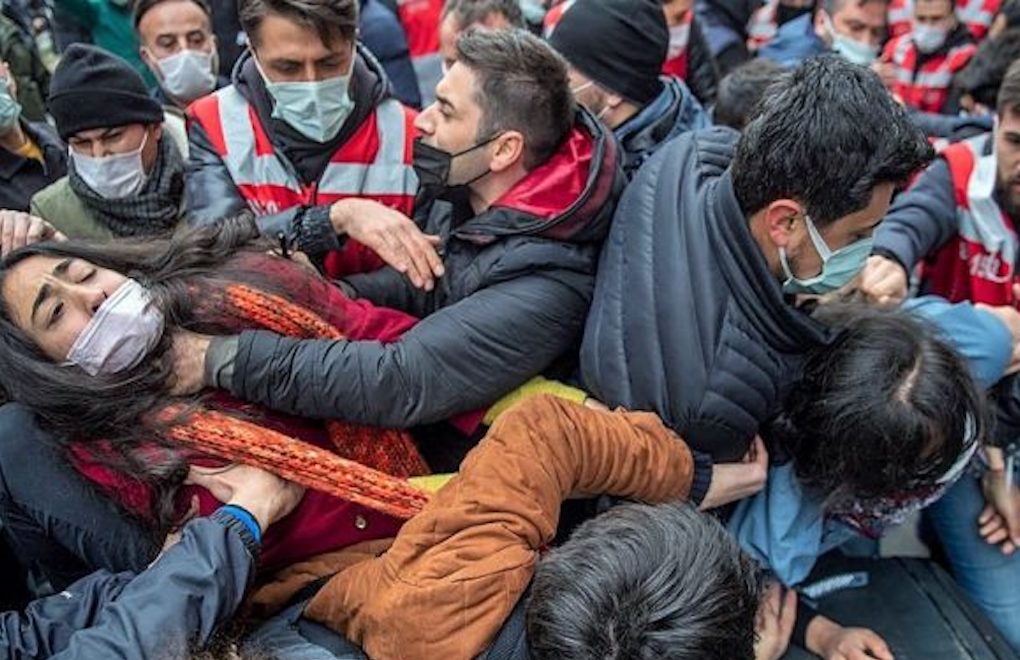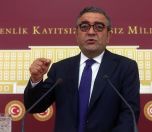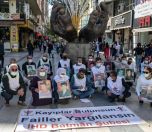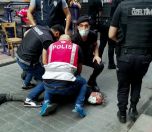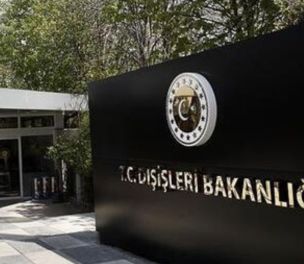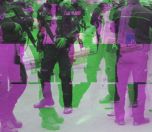* Violence against Boğaziçi University students / Twitter
Click to read the article in Turkish
The Bureau of Democracy, Human Rights, and Labor of the US State Department released its 2021 Country Reports on Human Rights Practices on April 12, 2022. Turkey's Ministry of Foreign Affairs has condemned the findings in the Turkey report by releasing a written statement.
"The unfounded allegations about our country in the 2021 Human Rights Report published by the U.S. Department of State on 12 April 2022 are unfortunate and we reject them totally," said the Foreign Ministry in its written statement yesterday (April 14), briefly adding:
"We invite the U.S. to focus on its own record in the field of human rights and put an end to its partnership with the extensions of terrorist groups under the guise of counter-terrorism.
"Turkey will continue with its work on protecting and promoting the rights of its citizens together with those of millions of persons it is hosting."
Referring to a series of outlawed organizations in Turkey, such as the Kurdistan Workers' Party (PKK) / People's Defense Units (YPG); "FETÖ", which is held accountable for the July 15, 2016 coup attempt; ISIS / DAESH and Revolutionary People's Liberation Party - Front (DHKPC), the Foreign Ministry of Turkey stated the following in the context of the US report:
"We regret that the U.S. has not yet comprehended our fight against terrorism in all its forms, PKK/YPG, FETO, DAESH and DHKP-C in particular. The lies of FETO, the perpetrator of the 15 July heinous coup attempt, are given wide coverage in the report.
"This demonstrates that the U.S. continues to be instrumental in the propaganda of this terrorist organization which it turns a blind eye on, despite all concrete evidence we have provided. It is also unacceptable that the report includes allegations which ignore the fact that the PKK is a terrorist organization and extend support to the claims of terror-affiliated circles.
"As we emphasized within the contexts of the previous reports, our country's determination to protect and promote human rights remains firm.
"Our cooperation with international human rights mechanisms, 2019 Judicial Reform Strategy and 2021 Human Rights Action Plan are amongst the concrete manifestations of this resolve."
What does the US report say?
US 2021 Country Report on Human Rights Practices in Turkey analyzes the state of human rights in Turkey under 7 sections: Respect for the Integrity of the Person, Respect for Civil Liberties, Freedom to Participate in the Political Process, Governmental Posture Towards International and Nongovernmental Investigation of Alleged Abuses of Human Rights, Discrimination and Societal Abuses and Worker Rights.
The main findings from the report are as follows:
'Members of security forces committed abuses'
"Turkey is a constitutional republic with an executive presidential system and a unicameral 600-seat parliament (the Grand National Assembly).
"In presidential and parliamentary elections in 2018, Organization for Security and Cooperation in Europe observers expressed concern regarding restrictions on media reporting and the campaign environment, including the jailing of a presidential candidate, that restricted the ability of opposition candidates to compete on an equal basis and campaign freely.
"The military has overall responsibility for border control. Civilian authorities maintained effective control over law enforcement officials, but mechanisms to investigate and punish abuse and corruption remained inadequate. Members of the security forces committed some abuses.
"Under broad antiterror legislation passed in 2018, the government continued to restrict fundamental freedoms and compromised the rule of law. Since the 2016 coup attempt, authorities have dismissed or suspended tens of thousands of civil servants and government workers, including more than 60,000 police and military personnel and more than 4,000 judges and prosecutors, arrested or imprisoned more than 95,000 citizens, and closed more than 1,500 nongovernmental organizations on terrorism-related grounds, primarily for alleged ties to the movement of cleric Fethullah Gulen, whom the government accused of masterminding the coup attempt and designated as the leader of the 'Fethullahist Terrorist Organization.'
A long list of 'human rights issues'
"Significant human rights issues included credible reports of:
- arbitrary killings;
- suspicious deaths of persons in custody;
- forced disappearances;
- torture;
- arbitrary arrest and continued detention of tens of thousands of persons, including opposition politicians and former members of parliament, lawyers, journalists, human rights activists, and employees of the U.S. Mission, for purported ties to 'terrorist' groups or peaceful legitimate speech; political prisoners, including elected officials; politically motivated reprisal against individuals located outside the country, including kidnappings and transfers without due process of alleged members of the Gulen movement;
- significant problems with judicial independence;
- support for Syrian opposition groups that perpetrated serious abuses in conflict, including the recruitment and use of child soldiers;
- severe restrictions on freedom of expression, the press, and the internet, including violence and threats of violence against journalists, closure of media outlets, and arrests or criminal prosecution of journalists and others for criticizing government policies or officials, censorship, site blocking, and criminal libel laws;
- severe restriction of freedoms of assembly, association, and movement, including overly restrictive laws regarding government oversight of nongovernmental organizations and civil society organizations;
- some cases of refoulement of refugees;
- serious government harassment of domestic human rights organizations; gender-based violence;
- crimes involving violence targeting members of national/racial/ethnic minority groups;
- crimes involving violence against lesbian, gay, bisexual, transgender, queer, and intersex persons.
'Limited steps for investigation'
"The government took limited steps to investigate, prosecute, and punish members of the security forces and other officials accused of human rights abuses; impunity remained a problem. The government took limited steps to investigate allegations of high-level corruption.
"Clashes between security forces and the Kurdistan Workers' Party terrorist organization and its affiliates continued and resulted in the injury or death of security forces, terrorists, and civilians. The government did not release information on efforts to investigate or prosecute personnel for wrongful or inadvertent deaths of civilians linked to counterterrorism operations." (AEK/SD)




